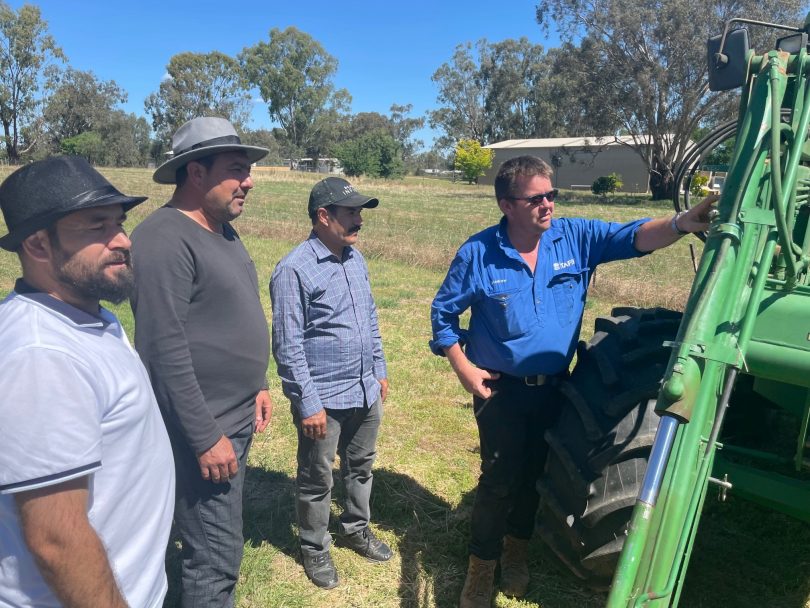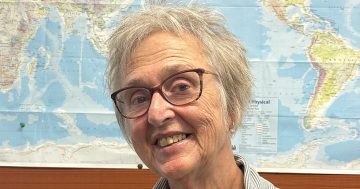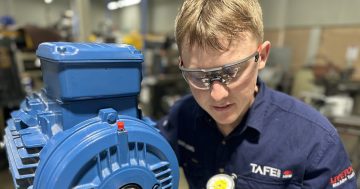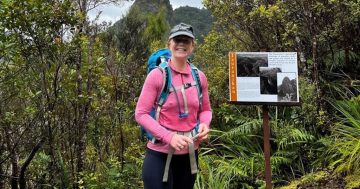
TAFE NSW agriculture teacher Andrew Baxter shows the Yazidi students some of the components of a tractor as part of a unique TAFE NSW course. Pictured are (from left) Shahab Mahmood from Red Cross Australia, and students Khadida Hasan and Khalaf Smoqi. Photo: TAFE NSW.
An inspiring project aimed at arming refugees with new employability skills and helping Riverina farmers address a crippling farm labour shortage is taking shape at TAFE NSW Primary Industries Centre in North Wagga.
A partnership between TAFE NSW, Australian Red Cross and employment provider Acclaimed Workforce, the Harvest Trail skill sets have seen a group of Yazidi refugees in Wagga gain practical skills in fencing, on-farm chemical use, and tractor and side-by-side operations to help them gain work on local farms.
The state’s farming sector is currently in the midst of a COVID-induced labour drought, with the NSW Farmers’ Association reporting a worker shortage of at least 10,000 people for this harvest.
TAFE NSW Head Teacher of Agriculture, Rob Harris, said the course delivered a “win-win” for the refugee community and the farming community.
“This is about giving these new arrivals the practical skills to gain meaningful work and also assist the Riverina farming community when it needs it most,” Mr Harris said.
He said he was impressed with the work ethic and willingness to learn of the students, some of whom had farming experience in their former homeland of Iraq.
Between now and April, TAFE NSW is delivering a range of skills in tractors and farm machinery, side by sides, chemicals, and fencing.
To help their integration journey, the students are also enrolled in the Adult Migrant English Program (AMEP) at TAFE NSW, an Australian government-funded initiative that offers free English lessons to eligible refugees and migrants.
Students also have a TAFE NSW English teacher with them throughout the harvest trail course to teach them in real-time.
Australian Red Cross NSW Regional Manager Migration Support, Neil Barber, said the project was a powerful illustration of how frontline agencies such as the Australian Red Cross and TAFE NSW could combine to make a meaningful difference in the lives of vulnerable residents.
“We are excited by the partnership Red Cross and TAFE NSW is building in Wagga Wagga to link our client communities to work skills and learning English with our cultural support and orientation programs,” Mr Barber said.
“Our aim is to ensure recently-arrived humanitarian migrants can use existing skills and experience to help find similar or new opportunities in the regions.”












